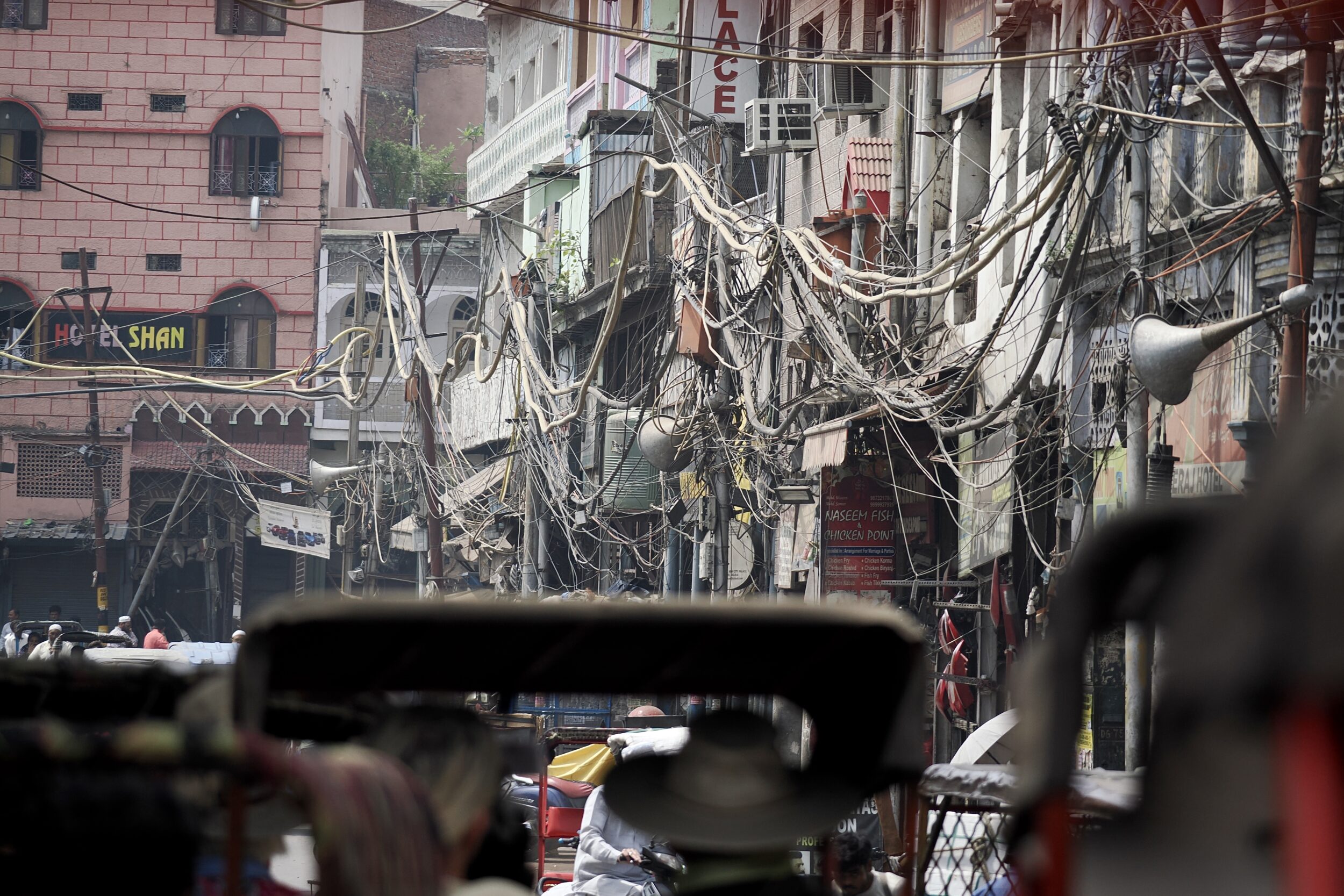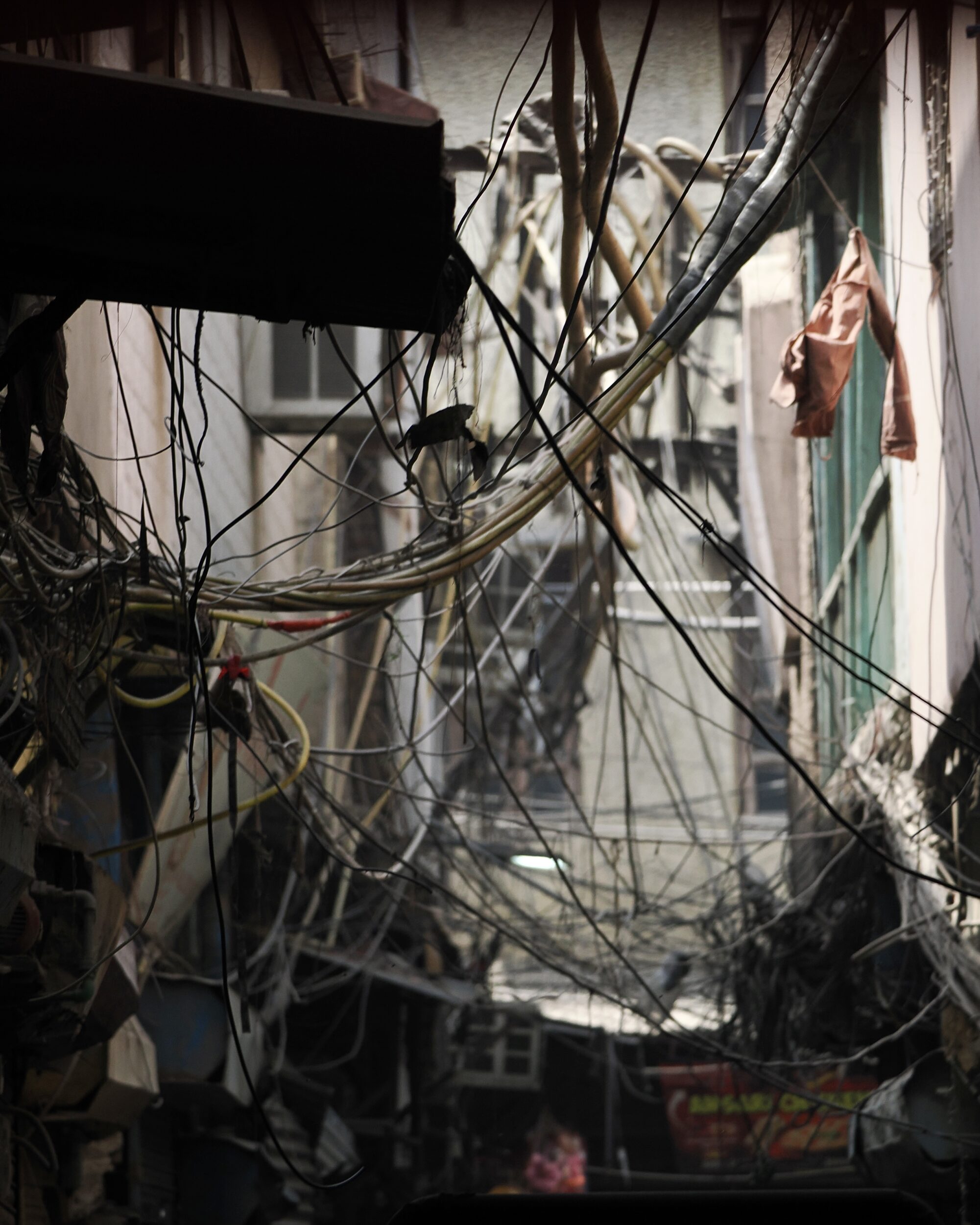Old Delhi’s “wiring” has to be seen to be believed.
Externally, everything electrical is “above ground”, rather than “above board”; electrical connections are “highly informal”.
The “regulatory hand” is nowhere apparent.
This post’s images were both taken from “our” rickshaw; the first looks left, into a lane, the one below looks straight ahead.

When established, more than 370 years ago, the original walled city – then called “Shahjahanabad” – was the Mughal empire‘s meticulously planned, new capital.
It then was “the city” in Delhi.
In 2024 what is now “Old Delhi” comprises just one percent (or thereabouts) of the population and geographical area of the Delhi megalopolis.
Delhi is home to around 34 million people, making it the second or third largest of the world’s megacities.
On current projections, Delhi and/or greater Jakarta should take “the crown” from Tokyo-Yokohama, well before this century’s midpoint.
No 20th or 21st century visitor to Old Delhi would have perceived it as “well-planned”, let alone as looking remotely like it had begun as a mighty empire’s capital city.
Many, however, would agree – New Yorkers included – that Old Delhi is the liveliest urban place they have ever experienced.
In comparison, Manhattan is “placid” …as is “New” Delhi!
